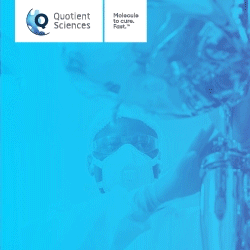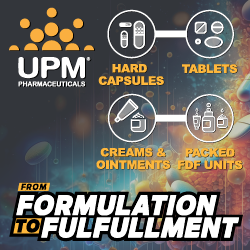Rubius Therapeutics Highlights Preclinical Data for Oncology Product Candidate
Rubius Therapeutics, Inc. recently announced the presentation of preclinical data supporting its lead artificial antigen-presenting cell (aAPC) program, RTX-321, for the potential treatment of human papillomavirus (HPV) 16-positive cancers during the American Association for Cancer Research (AACR) Virtual Annual Meeting II.
“These preclinical data presented at AACR suggest that RTX-321 may promote epitope spreading, meaning that RTX-321 may induce the expansion of an immune response to secondary epitopes, or antigens, that are not expressed on RTX-321. This finding is important because it suggests that RTX-321 may create a broad and effective immune response against multiple tumor antigens,” said Laurence Turka, MD, Chief Scientific Officer of Rubius Therapeutics. “Additionally, the preclinical surrogate of RTX-321 induces tumor-specific memory, potentially enabling the body to remember a cancer’s identity, which is critical to providing long-term protection from recurrence of the tumor. Taken together, these findings support the potential of RTX-321 as an effective antigen-specific therapy for HPV 16-positive cancers. We plan to file the Investigational New Drug application for this program by the end of 2020.”
RTX-321 is an investigational allogeneic aAPC therapy that is engineered to induce a tumor-specific immune response by expanding antigen-specific T cells. RTX-321 expresses an HPV peptide antigen bound to major histocompatibility complex (MHC) class I proteins, 4-1BBL – a co-stimulatory signal – and IL-12 – a cytokine – on the cell surface to mimic human T cell-APC interactions.
-Treatment with mRBC-321, a mouse surrogate of RTX-321, leads to tumor cures and long-term memory based on protection from re-challenge with tumor cells
-Protection of mice challenged with parental cells lacking the original antigen strongly suggests treatment with mRBC-321 promotes epitope spreading
-mRBC-321 inhibits tumor growth without adoptive transfer, which is correlated to endogenous T cell expansion in the tumor
-RTX-321 activates and expands HPV-antigen-specific TCR-transduced primary T cells in vitro
-Overall, mRBC-321 and RTX-321 can selectively engage and activate antigen-specific T cells, allowing for robust expansion and differentiation into effector and long-lasting anti-tumor memory cells
-Taken together, these findings support the potential of RTX-321 as an effective treatment for HPV 16-positive cancers
Rubius Therapeutics is a clinical-stage biopharmaceutical company developing a new class of medicines called Red Cell Therapeutics. The company’s proprietary RED PLATFORM was designed to genetically engineer and culture Red Cell Therapeutics that are selective, potent, and off-the-shelf allogeneic cellular therapies for the potential treatment of several diseases across multiple therapeutic areas. Rubius’ initial focus is to advance RCT product candidates for the treatment of cancer and autoimmune diseases by leveraging two distinct therapeutic modalities — potent cell-cell interaction and tolerance induction. For more information, visit www.rubiustx.com.
Total Page Views: 1436












